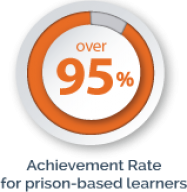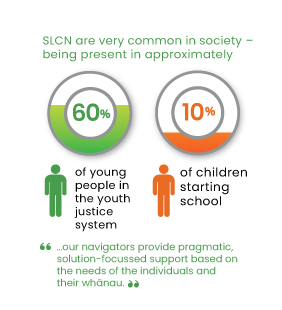Corrections Life Skills Programmes
The Mission delivers arrange of life skills programmes to prisoner learners at both Otago Corrections Facility and Invercargill Prison.
These life skills programmes are designed to support prisoner learners as they prepare to transition out of prison back to their families and communities.
This can be a worrying time for prisoners as they approach their release date, heading back into their community – skills needed for employment, re-engaging with their families and children, making a fresh start.
Life skills programmes build on what prisoner learners already know, help develop personal coping and self-regulation skills, develop practical skills with parenting, achieving a drivers licence, and looking to be work ready.
Driver License Training

We have successful delivered a learner licence programme at Otago Corrections Facility (and the previous Dunedin Prison) for almost two decades – with a pass rate of over 95% for prison-based learners.
For many of our prison-based clients – obtaining a learner licence is an important step to becoming a full-licensed driver – which greatly assists with employment prospects and social reintegration on-release. Having a valid learner licence also helps to avoid a recall to prison if stopped while driving on probation, and is an important form of photo identification for seeking employment and accommodation.
Our learner licence programme prepares participants for the learner test through four x two-hour sessions and includes repeated practice on real test questions, group-based activities to support learning difficult concepts, and practical support with literacy, numeracy and test technique.
BDDI
The Brief Drink Drive Intervention (BDDI) is aimed at improving knowledge attitudes to avoid drink driving behaviour and is being delivered at Community Corrections sites in Timaru, Dunedin, Gore and Invercargill.
BDDI is an interactive six-hour programme that includes a variety of innovative teaching tools, including hands-on driving simulators and impairment goggles that replicate the experience of intoxication at various blood alcohol levels.
BDDI is successful in educating participants on the effects and dangers of substance use and driving, promoting positive attitudes towards avoiding impaired driving and creating practical plans to help participants avoid future drink driving behaviour.
Skills for Dads
Our Skills for Dads parenting support programme has been delivered to men at Otago Corrections Facility and Invercargill Prison since 2015.
Skills for Dads is a practical parenting skills programme that develops positive parenting attitudes, increases parenting knowledge, develops effective engagement skills and strategies (for both behind-the-wire and post-release parenting challenges), and promotes the creation of supportive parenting environments that are fundamental to breaking cycles of violence, improving parenting outcomes for prisoners, and reducing intergenerational offending.
Skills for Dads is purpose-built for the prison environment and has been continuously refined over several years to ensure the programme is culturally responsive, tailored to the needs of dads in prison, recognises the unique parenting challenges presented by incarceration, and addresses hyper-masculine cultures that reinforce traditional gender roles and often discourage many forms of meaningful engagement with children, including displays of emotion and affection.
Skills for Dads includes Individual Parenting Needs Assessments, the creation of Individual Parenting Support Plans, and the delivery of an innovative Parenting Skills Education Programme covering all modules outlined in the service specification. Skills for Dads also includes unique programme features to increase engagement and participation, such as the opportunity to create a Waka Huia – a kete containing parenting goals and personal parenting taonga, which is sent home to tamariki at the completion of the programme, along with a personal DVD recording containing an explanation of the Waka Huia items and personal messages to tamariki about their parenting plans and aspirations on release (including messages, whakataukī, stories and waiata).
MMS uses evidence-based outcome monitoring tools (FIT) and rigorous qualitative feedback processes to ensure that Skills for Dads delivers the following outcomes:
-
Improved attitudes and personal aspirations towards parenting.
-
Development of basic parenting knowledge, skills, techniques and strategies that enable prisoners to develop long-lasting, meaningful relationships with their children.
-
Increased awareness of positive, safe and supportive environments for children for the reduction of harm and neglect.
-
Overcoming common parenting challenges and barriers to engagement while in prison and on release.
-
Opportunities for prisoners to practice and role model effective parenting skills and strategies.
Each Skills for Dads programme is delivered by two facilitators over approximately eight x two-hour sessions. Evidence from five years of Skills of Dads delivery has demonstrated significant gains in participants’, attitudes, knowledge and confidence about parenting, and has assisted participants to improve their engagement with their children from inside prison (where feasible) and develop practical parenting strategies to assist with their parenting post-release.
Story Reading Dads
The Mission has been delivering Story Reading Dads at Otago Corrections Facility since 2007. In the Story Reading Dads programme, prisoners work on reading a children’s book and recording a personal message onto a DVD that is then sent home to their child, along with a copy of the book, and a storysack full of activities made by the prisoner that relate directly to the story and create further opportunities for learning and engagement.
The opportunity to create a DVD and personal items for their children are strong incentives for prisoner participation (and unique features of the Mission’s Story Reading Dads programme), and demand for the programme regularly exceeds available spaces.
Programme Outcomes
Story Reading Dads enables prisoners to establish and/or maintain important links with whānau. For prisoners, creating and sending the DVD and storysack is a constructive gesture and can provide a catalyst for developing positive relationships. Feedback from whānau members confirms that the DVD recordings often become valuable items for the children, who treasure the opportunity to see and hear their fathers on a regular basis.
The programme provides opportunities for informal discussions about parenting, with age-appropriate activities, developmental milestones, the use of tone and body language and parenting techniques commonly discussed in the preparation of the DVDs and storysack items. The programme also provides opportunities for positive role modelling, either from the programme facilitators, or the men themselves, plus candid discussions about parenting experiences and parenting goals.
The DVD recording process also informally supports literacy by requiring the prisoners to read several books and develop their reading, comprehension and presentation skills. The DVD, Story Reading and storysack also support the literacy development of prisoner’s children and promote positive intergenerational literacy outcomes.
Story Reading Dads Feedback
“Coming from an a an adult’s point of view, a man’s point of view, you know how you could sit there with a glue stick and pictures of the kids, animals and stuff you know it’s all good, brings ya you know you’re away from the from the everything that’s going on in the wing. And it’s another reason why I like the course coz you know it touches me in my heart to be able to do that for my daughter.” (Story Reading Dads participant).
“The part that I see – and it and it jumps out at you every day – and it’s this: prisoners coming back showing you what they’ve achieved, showing you what they’ve done, and show more interest in their children and how they want to be better fathers towards their children and things like this. And also having the change in the way they think on when they get out and changing their- they’re changing their mind from, ‘oh yea I’ll be back’ to ‘nah I might not be back,’ you know? or ‘I definitely won’t be back’ you know, what I mean?” (Department of Corrections Employee)
“I’ve always felt there was another side to him. Even when she was little I used to take her out to the prison and he had no idea how to hold her or feed her and they helped him along. It’s not that he doesn’t want to be dad: he doesn’t know quite how. So this has given him some tools, and something that’s of him- that’s being given to her. He was in CYFs care himself so that devastation of your own child going into care - and the guys do feel powerless, and I think it was something he could give. And I mean I don't think it’s adjusted how I see him, I think I always saw that gentle side to him anyway, but I thought what courage to stand there and say, “I’ve made a lot of mistakes in my life, and I don't want that for you”. It was very honest stuff.” (Whanau Member).
Corrections Adult Learning Programmes
The Mission’s innovative literacy and numeracy programme is delivered to prisoners at Otago Corrections Facility:
As well classroom teaching, our tutors work alongside learners in their existing prison industry programmes (dairy farming, engineering, carpentry, kitchen, grounds maintenance etc.)
Tutors use content from these programmes as a context to teach literacy and numeracy. For example, our tutors might use the names of farming equipment on the prison dairy farm to develop literacy skills. This makes the content of the programme relevant and interesting for the learners.
Every learner receives 100 hours of high-quality, contextualised learning, to ensure better literacy and numeracy skills, readiness for further industry programmes in prison, and better educational and employment outcomes on release.
Intensive Literacy and Numeracy:
This is an intensive programme to increase the literacy and numeracy skills in high-needs prisoners. This will enable them to transition to further educational opportunities as many further educational programmes require a minimum literacy and numeracy level. There is strong evidence to show that participating in further educational opportunities improves prisoner reintegration to their communities, gain improved employment and reduce further offending. The programme works with small groups of learners, no more than 6 in a group, providing strongly contextualised literacy and numeracy that is directly linked to either their involvement in existing prison work and training programmes or prison work and programmes they are planning to be involved in – this may include building, engineering, kitchen work, dairy farm, cleaning. The programme uses a range of tools to engage learners including Virtual Reality (VR), tablets, mind mapping and group activities, focussing on each leaners existing strengths to scaffold their learning.
Foundation Skills:
This programme is broken into two parts, Foundation Skills level 1 and Foundation Skills level 2. It is intended that level 1 completion will offer opportunity for learners to scaffold to level 2. The programme aims to provide core skills and core capabilities to prisoner learners looking to move into prison employment programmes to springboard onto higher learning or getting close to release and then move into employment on release – these core skills include managing personal wellness, problem solving, making informed decisions relating to personal income, managing personal finances; strategies to deal with stress; communication and working in a team, communicating information; preparing for gaining employment; accommodation; and health and safety in the workplace. Foundation Skills engages prisoner learners in learning where they bring their previous experiences and knowledges so they see the value of this and experience education as a positive and successful experience.
Horticulture:
NCEA level 2 is seen as an important qualification in NZ, including prisoner learners. The NCEA level 2 with a Vocational Pathway in Horticulture offers the opportunity for prison learners to gain this qualification in a highly practical hands-on learning way. Otago Corrections Facility has extensive grounds and a horticulture department that offers prisoners horticulture learning while they maintain the prison grounds. Using this practical experience and readily available resource, we are able to offer NCEA level 2 qualification building on prisoner learners previous learning and experience with horticulture in the prison and with practical real-time experiences using horticulture. This will enable learners to enter the horticultural industry and possibly other land based employment at entry level on release.
Work Accelerator
The uncertainty and disruption of a post-COVID economy will provide attentional challenges for people seeking employment. For the social sector, this requires us to think differently about the way we deliver skills training and support services.
Our Work Accelerator is trialing a new support model, and will introduce new and improved skills and learning content to ensure people have the best chance of successfully finding employment and/or re-training to new sectors of work.
Target Outcomes
Participants will identify their transferrable skills, build vocabulary and communication skills, health and safety competencies, and basic employment skills for specific work opportunities. Participants will also identify and understand their broader cultural, physical, social, and psychological strengths and needs, along with developing life skills, and establishing the key government agency, business and community relationships needed for immediate work, or immediate entry into intensive vocational training.
Programme Structure
1. Individualised Planning
-
Identify an individual’s existing skills, preferences and opportunities for re-training / re-deployment (can also include relocation, in conjunction with MSD)
-
Identify the existing training and employment options that match these strengths
-
Identify the literacy, numeracy and communication skills required for success in these training/employment options
-
Rapid screening and assessment of an individual’s literacy, numeracy, and communication barriers to participation in their targeted training/employment options
-
Finalise the accelerator plan with the individual (and their whānau where possible)
2. Accelerator Training
On completion of planning, participants will immediately commence an accelerator programme (targeted support for approximately 20 – 40 hours of contextualised literacy, numeracy, communication skills and health and safety knowledge to enable rapid commencement of training/employment options). This will include skills development specifically focussed on their next career choice (this could be one-one-one, small group, or enrolment in group-based modules, and could be physically delivered (ideally) or remotely delivered (where needed for reach or scale).
3. Transition Support
On completion of accelerator training, navigators will provide support across the transition to training/employment until individual is successfully embedded in their new environment. Transition support can be delivered via a combination of face-to-face and remote/online methods as required by each individual.
Partnerships
The Work Accelerator model will be trialed with a range of partners – including Government agencies, employers, and other employment support providers and community-based organisations.
Research and Experience
Development of the Work Accelerator model is developed based on the following project work:
-
Design and delivery of pre-release support programmes to prison-based learners
-
Design and delivery of the Speech Language and Communications Needs Navigator (SLCN) programme for Corrections’ High Impact Innovation Programme (Bail Support Service) in South Auckland
-
Detailed discussions with those upskilling and supporting Māori and Pasifika, employers from a range of sectors, recruitment and employment agents along with MSD and several ITOs.
-
Recent development work on post-COVID employment support packages to support re-training outcomes for individuals affected by COVID-related job losses.
Speech Language Communication Needs (SLCN)
Our Speech Language Communication Needs (SLCN) Pilot is a twelve month project designed to support the communication needs of clients of the Bail Support Service at the Manukau District Court.
SLCN is delivered in partnership with the High Impact Innovation Programme – an innovative Government agency responsible for reforming parts of the justice sector, and Talking Trouble Aotearoa – specialist communication support providers with considerable expertise in justice and care and protection settings.
The SLCN pilot aims to test an innovative new way of supporting communication needs – by establishing a small group of ‘navigators’ with strong cultural and interpersonal skills and strong connections within the local community, and providing them with specialist communication training and support from subject matter experts – to support the needs of a greater number of people at a sub-clinical level, and provide pragmatic solution-focused support based on the needs of the individuals and their whānau.
What are Speech Language Communication Needs?
Speech language communication needs (SLCN) are anything that significantly affects a person’s ability to understand and use language in their everyday lives.
This might include things like; having trouble listening, understanding what is being said, confusing words, understanding abstract concepts, understanding time, and remembering what has just happened.
SLCN are very common in society – being present in approximately 10% of children starting school and up to 60% of young people in the youth justice system. SLCNs can cause negative social, educational and employment outcomes, and can often present a significant barrier to accessing and benefitting from support services – with SLCN frequently ignored, or written off as bad behaviour, a lack of intelligence, or attention problems.
However, SLCN can be supported – with many individuals benefiting from timely access to skilled practitioners and simple, yet effective communication tools.
Currently – the public funding for SLCN support, and the limited number of specialist SLCN support provider in New Zealand means most children, youth and adults receive no targeted support.
Our SLCN pilot aims to test a possible solution to this problem, and develop an efficient, cost-effective model for supporting SLCN than can be replicated around New Zealand.
The SLCN Pilot
We are currently working with up to 60 individuals in Manukau – supporting their SLCN during their time on bail. The pilot involves testing different approaches to training and supporting both our own navigator workforce, and the Bail Support Service staff in Manukau, and trialing different approaches to supporting individuals with their SLCN. The pilot will conclude in September 2020, and progress with clients to date suggests that a viable SLCN model for large scale support is achievable, and that further work on the SLCN model will continue throughout 2021 and beyond.

